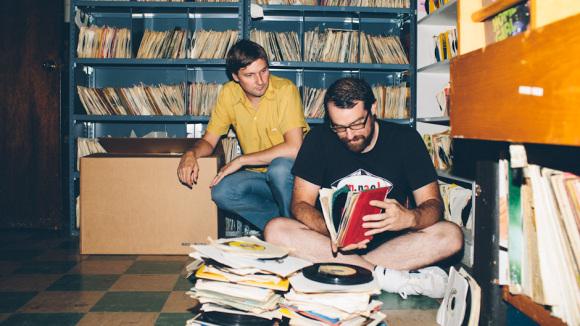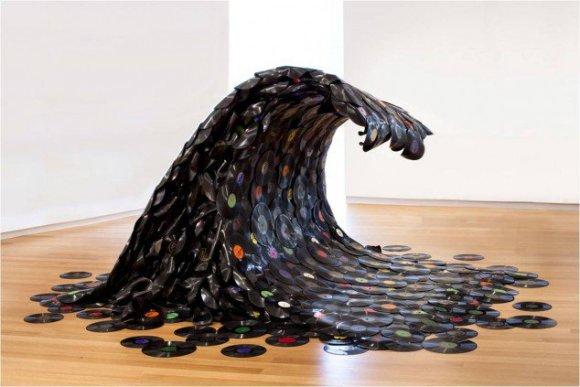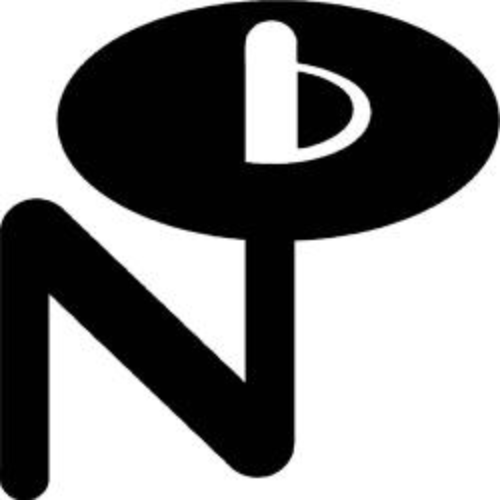Label Feature: Numero Group
- Date published
- 01-nov-2014
Founded in 2003 by Ken Shipley, Tom Lunt and Rob Sevier, the record company takes pride in presenting diverse material that never quite made it first time round and has received three Grammy Award nominations for their insightful and comprehensive packages that include vinyl, photos, extensive liner notes and interviews to put the music into context. In the beginning the label's focus was on rare soul and R&B music, as well as on defunct labels like Capsoul from Columbus, Ohio. For a while now, Numero Group and its diverse sub-labels have showcased old southern rock, psychedelic, rock, gospel, or odd folk. Numero Group's dedication has turned them into detectives, intent on making contact with the original artists and labels to provide a story behind the recordings. Their artist roster contains slowcore bands like Codeine from New York, French-Belgian synth pop legends like Antena, blues and soul singers like Syl Johnson, punk groups like Hüsker Dü, or private press soul and gospel heroes like Otis G. Johnson and Love Apple. For Carhartt WIP Radio show they compiled tracks from largely unknown acts like Next Exit, The Rollers, The Classmen and a whole lot more. To find out what makes The Numero Group special and what you have to do to be a unique re-issue label we talked with co-founder Ken Shipley about his company and passion for music.

(left: Ken Shipley)
Hey Ken – can you introduce yourself for us a bit? Where are you coming from, what is your occupation?
Ken Shipley: I am the co-founder and director of The Numero Group, a Chicago archival record label.
How did you first get into music and when did you decide you wanted to make music your career?
Ken Shipley: At age 14 I was putting on punk shows at a local bowling alley in my hometown of San Jose, California. Within three years I'd released my first record. I've never done anything else.
Any role models, inspirations, or benchmarks for Numero Group when it was launched by Tom Lunt, Rob Sevier and you in 2003?
Ken Shipley: Modern in the '50s, Blue Note in the '60s, Ork in the '70s, 4AD in the '80s, Sub Pop in the '90s.
What do you do for Numero Group on a day-to-day basis?
Ken Shipley: I've worn pretty much every hat at the label at one point in time or another. Designer, book keeper, salesman, box packer.... Over the years I've shed a lot of responsibilities, and primarily focus on brand and business development, acquisitions, and running the design department. But even now as we've grown to a staff of 17 I still find myself unloading pallets, analyzing overstock, and tinkering with marketing plans.
How would you describe the music that you release to someone that hasn’t heard of it?
Ken Shipley: We make records you didn't even know you wanted to own.
What does the label’s name stand for?
Ken Shipley: It's the Spanish word for Number.
What process do you follow for new re-releases or compilations of old music? How do you find the music or how does it find you?
Ken Shipley: There isn't one process. We buy records, we scour YouTube, we listen to trusted sources. Sometimes we just think a catalog is interesting and will acquire it on a hunch.
Do you have a "wish list" of albums you'd like to re-release on Numero Group? If so: which ones?
Ken Shipley: Rob and I are collectors of Joni Mitchell bootlegs. Issuing legit versions of some of her late '60s/early '70s work would be incredible.
How important are the non-musical components of your releases, i.e. packaging, liner notes and album art?
Ken Shipley: The packaging and notes are just as important, if not sometimes more important. Context is everything.
What musical qualities do you look for as a "curator" of music? And what does a track or an artist need to have for you in order to re-release it?
Ken Shipley: Great songs. A great song will sound good at any interval in time, even if it didn't reach the right ears when it was released originally.
What advice would you give to people who plan to launch a label to re-release old forgotten music?
Ken Shipley: Buy a time machine.
What do you want to accomplish with the music you re-release?
Ken Shipley: We want to create a library of music that will be looked back on in the same lights as Folkways.
Which of the tracks/albums you released are you most proud of?
Ken Shipley: Syl Johnson's Complete Mythology is my finest work, but I rarely look back after we put an album to bed.
What was the biggest Numero Group hit so far?
Ken Shipley: Penny & the Quarters: You And Me.
Numero Group got several different subdivisions and sub-labels like Eccentric Soul, Good God!, Private Issues or Cali-Tex and Numerophon. How do you keep managing all this divisions and labels and what makes them different to Numero Group?
Ken Shipley: There's a distinct difference between a series and a sub label. Eccentric Soul (regional soul labels and producers), Good God! (gospel), Local Customs (regional custom studios), and Wayfaring Strangers (private issue folk) are all series. Numerophon and Cali-Tex are labels. Numerophon concentrates on ethnic and folk music. Cali-Tex is the vision of Josh Davis (DJ Shadow).
On what future projects are you working on?
Ken Shipley: Ork Records box set, Royal Jesters, Epstein Enterprises, the fourth Unwound box set, Edge of Daybreak.
How do you keep your work fresh and continue to evolve?
Ken Shipley: I like to constantly challenge myself and the staff to push further into the unknown with every project we work on. From the A&R to the design, if we're not constantly trying something new I get bored. As Dylan said, "He not busy being born is busy dying."
What’s the best thing about your job?
Ken Shipley: Being able to say yes.
What’s the worst thing about your job?
Ken Shipley: Having to say no.
Can you send us a picture (of you or of something/place) that illustrates best your current state of mind to post along with your answers?

How did you select the tracks for your Carhartt WIP Radio show?
Ken Shipley: It's a mix of favorites and tracks we think should be hits. Both an introduction to the label and a flashlight thrown down the well for those who've been following us for years.
What was the first record you bought?
Ken Shipley: Dead Kennedy's In God We Trust Inc. on cassette. I was 12.
What was the last record you bought?
Ken Shipley: Shirley Collins' False True Lovers on LP.
What track gets currently the most rewinds when you play as a DJ?
Ken Shipley: I never rewind.
What are three albums that you'll absolutely never get tired of listening to?
Ken Shipley: Dusty Springfield: "Dusty in Memphis" (Atlantic) , Joni Mitchell: "Blue" (Reprise Records), Van Morrison "Astral Weeks" (Warner Bros.- Seven Arts Records).
What kind of music would you release in a world without electricity?
Ken Shipley: I don't think I would release any music. I'd probably be more concerned with inventing electricity.
Please recommend two artists to our readers which you feel deserve their attention.
Ken Shipley: Meic Stevens and Jeff Cowell.
Any musical guilty pleasures?
Ken Shipley: No such thing as a guilty pleasure. If I listen to it, I won't hide it.
Do you have any idols when it comes to music?
Ken Shipley: Ahmet Ertegun is the record man's record man. If I'm 83 years old and back stage at a concert and happen to fall down a flight of stairs and crack my head on the concrete... Well, I think I'll have lived a pretty great life.
What was your dream job as a child?
Ken Shipley: I wanted to be a stand up comic or Tony Hawk. Maybe both.
When or where do you feel most at peace?
Ken Shipley: In the office at 6AM, before the chaos unravels the day.
What are your top five obsessions at the moment?
Ken Shipley: Hating Amazon, Rectify, pot-valiant, Tommy Jones' Mad and M&M labels, relocating Numero.
What is your favorite place outside of a bar / club / record shop?
Ken Shipley: The movies.
What are 5 words that would describe your personal fashion style?
Ken Shipley: Tom Verlaine in the 1970s.
If you could be in any band, living or dead, for a day which band would it be?
Ken Shipley: The Funk Brothers.
What superpower would you like to have?
Ken Shipley: The ability to travel through time.


